| Numinous The Music of Joseph C. Phillips Jr. |
The Numinosum Blog
|
I'm still around! While my postings over the past year have been, let's say sporadic, it has been with good reason. I was writing my thesis and completing my Masters degree in Music Composition from Stephen F. Austin University. Now that I'm an official Master, my blog writings will be a little more frequent including a future post detailing some of my grad school experiences including some of my thesis: The Music CompositionMISCĒRE, the Historicity of Mixed Music and New Amsterdam Records in the Contemporary New York City Mixed Music Scene (sounds scintillating, right?!). Also, while it won't be called Miscēre, you'll be hearing some of the music from the thesis as a future large-scaled Numinous project, premiering in 2012!
One thing that has been great since graduating is now I actually have time again to read for pleasure and NOT for school (not that school reading was unpleasant, actually much of it was, but I think you understand what I'm sayin')! Before the research for my thesis began in earnest I was enjoying reading the George Lewis book A Power Stronger Than Itself about the AACM. Needless to say, I had to put it down as I focused on more things immediately pertinent to the thesis. Actually I wished I hadn't put it down, because as I began reading the book again from where I left off (had just started Chapter 7-"Americans in Paris") I've found that some of it was/could have been quite useful to the thesis, particularly some of the fascinating later discussion such as in Chapter 9 ("The AACM in New York") about new music, mixing genres, society and culture, especially the lack of cross-pollination and critical acceptance within the general new music community of the 1970s to some African-American composers/performers who were working in similar modes of expression as those "pan-European" composers in the "downtown art world" nexus. Oh well, if I decide to continue to a PhD., perhaps the Lewis book will find its way into my research. Frankly anyone interested in the current debate in the new music community about music that fuses elements from a wide variety of sources and inspirations including vernacular music (the mixed music, alt-classical, post-classical, indie classical, is-it-classical-or-is-it-pop-or-is-it-jazz-or-WTF-is-it debate) really should read the book. POSTED BY NUMINOUS AT 12:52 PM
0 Comments
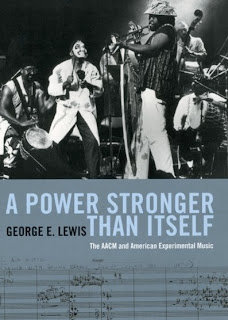 Right now while I'm in the middle of writing music for some upcoming projects, I've actually had a little time to read for fun. Like many people I have a stack of 'to read' books that I always plan to get to 'someday.' Sadly someday ends up being later than I hoped for and of course, my 'to read' stack gets taller than my shelf I stack them on. One of those books I've been hoping to pull down off that shelf, and have now started, is A Power Stronger than Itself by George Lewis. Written in 2008, it is the account of American Experimental Music in the 1960s through today, especially as it relates to the neglected (or less heralded) exploits of African-American experimenters working contemporaneously as the more trumpeted 'New York' school of music avant-gardist in the 1960s like John Cage, Morton Feldman, Earle Brown, Robert Ashley, Steve Reich et. al. And so far is an inspiring and fascinating read. Along with a dizzying cavalcade of musicians, both known and unknown to me, are the accounts and struggles of the artists both socially and musically (remember this was the 1960s when "race, itself was assumed to overdetermine the identity of the black creative artist"; actually, I think this statement might, in some ways, still be true today). I'm only a few chapters in right now but I'm sensing this is going to be one those books that influences me on a deep level long after the book returns to my shelf of 'read' books... POSTED BY NUMINOUS AT 10:49 PM 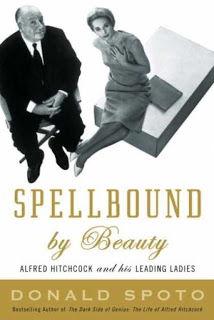 Along with being busy converting and editing Pulse and Numinous videos, last weekend I finished Donald Spoto's Spellbound by Beauty: Alfred Hitchcock and his Leading Ladies. I originally checked this book out from the library to take with me on my Paris trip early last week; I wanted something light and fun for the plane ride. However the Hitchcock quote on the front cover was an indication that this book wasn't going to be what I thought: "The trouble today is that we don't torture women enough." Ah, okay. Now once I began reading the book, I found the context for the quote-Hitchcock was describing the traditional way, since the early days of film, of creating excitement on-screen: the "lady in distress" which Hitch felt (at that time) was lost. However, I'm thinking Hitchcock actually DID believe in his quote what with the treatment endured by many of his leading women, usually from Hitchcock himself, which was often rude and controlling, sometimes misogynistic, and with a few women, downright sexual harassment. Now growing up, I knew OF Hitchcock. He was an icon--the rotund, jowled avuncular figure who made those old horror movies, Psycho and The Birds. Of course I never actually SAW Psycho or The Birds growing up. But I didn't really need to; shower scene (check!), Bates Motel (yep, check!), crazy birds attacking (you betcha!)--I knew it all without ever seeing it because it was all just part of the stream of American culture. I was young when Hitchcock died in 1980 and his death never really marked anything for me. He was apart of that long ago world which also included people such as Cary Grant, Ingrid Bergman, Jimmy Stewart, Katherine Hepburn, Joe "Mr. Coffee" DiMaggio, Princess Grace, and Betty Davis; all of whom were alive when I was younger and while I was cognizant then that they were somebody back in the day (especially Joltin' Joe, since I was hugely into baseball), I knew little to nothing about them at the time, well except for occasional glimpses in the National Enquirer or featured on Johnny Carson's Tonight Show. It wasn't until about six years ago that I began to be interested in Hitchcock and his body of films. I don't really know how it started except that I check out one or two of his movies from the library and was hooked. The 39 Steps, Notorious, Spellbound, Vertigo, The Man Who Knew Too Much (both versions), North by Northwest, Shadow of a Doubt, Rear Window (seeing Grace Kelly in that movie inspired me to write a piece about her, "Passion of a Quiet Flower"), Frenzy and yes, finally Psycho and The Birds, I saw all that the library had (seems like I had more time to watch movies back then). I was struck how Hitchcock was able to balance artistic demands, technical virtuosity, humor, and serious psychological and human nature study all wrapped up in a bon-bon that feted a wide and diverse audience, one that Joe Six-Pack and Mademoiselle Cinema-ista could both enjoy. Indeed, Hitchcock was the public's auteur. Even his last movie, Family Plot from 1976, when he was going through the motions and young, hip directors such as Martin Scorsese, Peter Bogdanovich, and Steven Spielberg seemly past him by, there were still wonderful moments that demonstrated he still had the touch: such as the (literal) killing scene on the staircase where the woman's long purple dress gracefully flows full, all shot from a perspective high above the scene. And of course the music, especially the Bernard Herrmann scores to Psycho and Vertigo, was fantastic. Listening recently I'm still impressed and moved by the end of the shower scene of Psycho and how those strings sound like last gasps of air or the opening montage in Vertigo with the wonderful Eb minor-major 7th, contrasting motion arpeggios with the Saul Bass swirling graphics and later in the film with the growing tension and climax of the Madeleine 'revealing'. Spellbound by Beauty is a chronological overview of Hitchcock's movies, with a focus on his relationship to not only his leading ladies but also the supporting actresses as well. Through interviews with many actors and actresses, writers, and other collaborators who worked with Hitch over his long career, most agreed that he could be charming and witty and certainly a genius but who was also frustrated sexually which manifested itself through crude sexual and bathroom humor, a controlling manner, and an often standoff-ishness with women not his ideal (of course his ideal was blond: Madeleine Carroll, Ingrid Bergman, Grace Kelly, Vera Miles, Tippi Hedren). There was one quite sad quote from Hitchcock himself which said he had the same feelings as everyone else, just "wrapped in a body of fat". The book is mostly gossipy, but there are many interesting tales and facts to be found: what wonderful and warm people Ingrid Bergman and Madeleine Carroll were, what a control freak producer David "Gone with the Wind" O. Selznick was, how Tallulah Bankhead was the Lindsay Lohan of her day, and astonished in how the treatment of Tippi Hedren during The Birds and Marnie was criminal and who NEVER happen or be allowed today--the final scene in The Birds basically involved the crew throwing live birds at Tippi Hedren for a week of filming; the isolation, controlling, stalking and sexual harassment on and off set of Marnie. Also there is some interesting analysis of how some of his films, particularly Vertigo and Marnie, could be autobiographical but overall I wasn't very happy with the writing of the book. I guess a question that could be asked is whether all of the salacious details of Hitchcock, change my high opinion of his films? Will Grace Kelly be diminished in my eyes? I hope not (I can still listen to Wagner even though he was a reprehensible person), but even I'm curious to find out if it will the next time I watch Rear Window (I guess either way, I'll always have the first time of the "Kiss")... POSTED BY NUMINOUS AT 7:00 AM 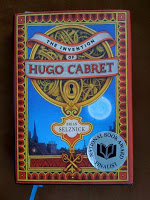 It was a happy coincidence that just before my short trip to Paris earlier this week I finished The Invention of Hugo Cabret by Brian Selznick, which is set in The City of Lights of the 1930s. The book won the 2008 Caldecott Medal for Best Illustrated Children's Book although in truth it is more of a hybrid: thicker and more prosaic (in the literal sense) than most picture books yet too many drawings to be a novel or storybook. The story begins with a brief introductory overview by "Professor H. Alcofrisbas", our narrator of sorts and leads directly into a wonderful black and white pencil drawing of the moon, then the moon over Paris, and eventually we find ourselves looking in a bustling train station and a close up of our namesake, a young pre-adolescent boy hustling through said station. The book proceeds to gradually unfurl the story of Hugo and how a broken mechanical man he found in a fire changes the rest of his life. At first, I was thinking the story was going to go in a fantastical, "Pinocchio" direction, but it evolves into a more realistic reverie on finding our way back into the world (and making connections with others) after a loss. In general the drawings in the book are cinematic in composition and concept with many interesting point of view perspectives, close-ups, and some consecutive drawings which in film would be dolly shots. Now this is apt since film and cinema play a central role in the story. Overall I found the book pleasant with Hugo, the toy shop owner, Georges and his daughter Isabelle forming the compelling central axis of the story. However, some of the most interesting parts of the book for me were the pages of actual photos, stills, and drawings from cinema of the 1920s. These were fun to see and reminded me of a DVD set of preserved films I bought almost 10 years ago, Treasures from American Film Archives. The early films, newsreels, documentaries, and one-reel adventures from that DVD set brought about a similar sense of voyeurism of a time and life long since past that I found in those actual photos from Hugo Cabret. Right now one of the books I'm reading is Spellbound by Beauty, Alfred Hitchcock and his Leading Ladies by Donald Spoto (the other is The Brief Wondrous Life of Oscar Wao by Junot Diaz) and so far the stories about the early days of Hitchcock's career are another fascinating window into that world of early cinema which Hugo Cabret peeks into. POSTED BY NUMINOUS AT 12:01 PM 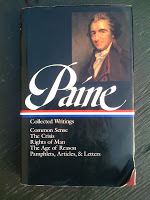 I just finished my third summer read Common Sense by Thomas Paine, the book I was reading before getting sidetracked with Malcolm Gladwell's Outliers. Over the past year or so, I've been researching Thomas Paine for an upcoming dance collaboration between choreographer Edisa Weeks and her company Delirious Dances and myself and my group Numinous. The new work will be based on the writings of Thomas Paine (the "forgotten Founding Father") and will be part of a larger symposium we are planning on the meaning of democracy and freedom in today's world, particularly here in the United States. The premiere will be taking place in June 2010 here in New York City and I will be blogging more about the project in the weeks and months to come. I suggested Thomas Paine to Edisa as a subject for collaboration but I'll admit at that time my knowledge of him was minimal beyond the basic outline of his life and some of his well-known aphorisms and quotes (for example, "these are the times that try men's souls" from American Crisis). But once we decided to do the project, I began reading up on his life and role in the founding of the United States, being particularly fascinated by the account of his legacy in Harvey Kaye's book Thomas Paine and the Promise of America. Having been sufficiently maligned over the centuries by many specious rumors and writings especially after speaking out about religion and politics in The Age of Reason, today when people speak of the Founding Fathers, rarely is there mention of Thomas Paine and the effect this Briton and his thought had on the movement toward independence and democracy in the middle 18th century. And those thoughts, a call to action so to speak, are crystallized in Common Sense. Common Sense is an open letter "addressed to the inhabitants of America." Reading it, my first thoughts were, had he lived today, Thomas Paine would definitely be a blogger of the first order. He gives passionate and reasoned arguments for why America should not be a colony of Britain, how a monarchy or any dependency can never achieve it's full potential, and why action (both political and military) is sometimes necessary in achieving and securing freedom. But one thing I was struck with is how in February of 1776 (5 months before the Declaration of Independence) Paine was able to articulate an impressively prescient vision of what America could possibly become ("we have every opportunity and every encouragement before us, to form the noblest purest constitution on the face of the earth. We have it in our power to begin the world over again"). And to the modern day constructionists that say all Founding Fathers felt America is "God's country" and religious thought is essential to governmental action, his answer to a long-forgotten Quaker rebuttal to not fight for independence should give ample pause for thought: "And here without anger or resentment I bid you farewell. Sincerely wishing, that as men and christians, ye may always fully and uninterruptedly enjoy every civil and religious right; and be, in your turn, the means of securing it to others; but that the example which ye have unwisely set, of mingling religion with politics, may be disavowed and reprobated by every inhabitant of AMERICA." With hindsight, the correct course of action to independence seems preordained but I'm intrigued by how even something as monumentally important (and again with hindsight, obvious) as independence and freedom, was viewed by some as the wrong path to undertake. It is a helpful lesson of history to know there will always be (and should be) naysayers and doubters; that in a democracy questioning and debate is healthy and needed. But that we should be wary of all those "interested men, who are not to be trusted; weak men, who cannot see; prejudiced men, who will not see" and who will hold up and block progress for everyone because of parochial concerns (something the politicians in the recent imbroglio in the New York State Senate should have remembered). With Common Sense, Thomas Paine calls to action all citizens to be active not only in the discussion of democracy and freedom, but in the maintenance of it as well (although, I'm not sure he was meaning for women, slaves, or Native Americans but I'll give him the benefit of the doubt with the spirit of his words). Next up for Summer Read #4: The Invention of Hugo Cabret by Brian Selznick POSTED BY NUMINOUS AT 1:53 PM I had just started to read another book, when I was given Malcolm Gladwell's Outliers last week. Wanting to read it when it came out last year, my continually growing stack of "books to read" prevented me from adding it to the pile. So when I was given the book, I decided I would jump in and put the other book "on hold". I have not read Blink, Gladwell's second book, but I did read his first, The Tipping Point. And while I found myself engaged in the stories he presented in a very informal, breezy manner, I didn't always buy into the conclusions he came up with. Sometimes there are just too many variables to a situation to give a definite or even general pronouncement as he sometimes does. But whether I agreed with him or not, I found The Tipping Point thought-provoking and captivating reading (the story about Paul Reverie's ride and how the "other rider" that night generated little response was a classic) and hoped for the same with Outliers.
Before Outliers was published back in the fall of 2008, as always, all of the "cool" people were talking about it in newspapers, magazines, and on-line reviews and discussions--the buzz of Gladwell was in full force. I did read a little about the book back then so I did have an idea what to expect from the book when I started reading last week. But I definitely didn't expect my initial reaction as I began reading the first couple of chapters: anger. The first chapters in Part One: Opportunities, The Matthew Effect (about hockey stars in Canada being born ONLY in January, February, and March) and The 10,000 Hour Rule (the aforementioned amount of time needed to complete mastery of a subject) seem to offer a deterministic attitude toward success, and if you don't fit in, then you won't be successful no matter what you do; your fate is decided! Now Gladwell, does not really say this. He just gives his conclusions from the available data, but this is the interpretation I came away with. When he says, "We are too much in awe of those who succeed and far too dismissive of those who fail...we overlook just how large a role we all play in determining who makes it and who doesn't" (pg. 32-33) here is where I think my anger came from. Not that there are successful people and some are and some aren't, it is what happens to those NOT considered successful and how they are seen/treated as just not working hard enough, or not talented enough, or just not having what it takes. Reading the rest of Part One, The Trouble with Geniuses (does being really smart convey that much of an advantage?) and The Three Lessons of Joe Flom (how being born in 1930, Jewish, and a practicing lawyer conveyed a opportunity in corporate law in the 1970's and 80's), I was reminded of The Beak of the Finch by Jonathan Weiner, one of my favorite all-time books. The Beak of the Finch documents, through the work of scientists Peter and Rosemary Grant, how Darwin's theory of evolution is playing out in real and demonstrative ways in finches on the Galapagos Islands. One thing I remember from the book, was how the different beaks of the finches all are useful in different ways (one type might be good for opening hard shell nuts and not for soft shells while another is the opposite). And depending on all the interconnected conditions on the island (weather, nut production, predators, etc.), one type of finch may thrive and another won't. One set of skills leads to an advantage over another set, simply because of chance and circumstance. And here's an important point, there is no inherently "good" type of beak to have because you change the conditions (which does happen, with say a drought) and another type of finch becomes king. This is very similar to Joe Flom, who had certain skills which did not give him an advantage in one kind of world (1960's New York City corporate law), with the change of conditions his same skills now became very valuable in the new world. While the successful generally do have to have the talent and ability (you have to be "talented enough", "smart enough"), the path to success often follows unseen advantages. Here is a wonderful interview with composer David Lang discussing how the Pulitzer Prize, which he won in 2008, has brought him opportunities he never would have had pre-Prize (listen for the funny and a bit discouraging story about wanting to write a piece for 1000 screamers in the street). And for me the interesting thing is he says he is no better composer now than before the Prize, but post-Prize others (critics, funders, orchestras, etc.) treat him differently; he is now a "serious" composer, more worthy of attention and opportunity! So for David Lang, his conditions changed, not who he is (although you could argue that now that he's won, he has changed), and so now he is a success (as if he wasn't before!). There is a scene in Spike Lee's 1992 movie Malcolm X, when the young Malcolm, voted the class president by his white classmates, talks with his teacher about his desire to be a lawyer when he grows up. The teacher tells him he is good with his hands, maybe he should be a carpenter; a lawyer is no profession of a 'colored' boy. Outliers reminded me all of those who had similar conversations that discouraged or frustrated their possible achievement. What about those who didn't have the advantages, which in turn lead to opportunities, which lead to more opportunities, which can lead to success? Are they failures? Gladwell does lament what kind of world could we have if everyone could have equal chance for success. How many more Steve Jobs or Bill Gates would be out there, given the right stimulus, the right development, the right opportunities to "learn how to be an expert". It doesn't mean everyone will succeed in being Bill Gates, it does mean we should create the atmosphere of the possible. And so as I began reading Part Two: Legacy, I became less angry as Gladwell begins to tell stories of what can be done to lead to success despite the obstacles and disadvantages. Harlan, Kentucky (how to end a generational cycle of violence), The Ethnic Theory of Plane Crashes (how cultural differences can be overcome), Rice Paddies and Math Tests (how success in math can be taught and is not preordained), Marita's Bargain (once middle schoolers humble life but outsized effort), and A Jamaican Story (the story of the Gladwell Family beginnings) were all more of a hopeful tone, showing what can be done to overcome fate and circumstances. Here's a question I had throughout as I was reading, what about those people who are outliers to the outliers? What about those Canadian hockey all-stars NOT born in January, February, March? The low-income student with the terrible home life who nonetheless rises above the cycle of poverty? What drives those people to succeed against their circumstances, what help along the way do they receive? I thought of the movie Gattaca, where the Ethan Hawkes character, in a near-future world, has the attitude, desire and ability to be an astronaut despite not being of the 'right' genetic make-up. But it isn't until he gets help at the end, despite his talent and effort, that he is able to transcend into achieving his ultimate success. While Outliers has given me much to think about, like The Tipping Point, I do not always agree with Gladwell's conclusions. But one thing is clear from reading the book: while luck and fortune may favor the prepared, opportunity is a barn raised by many hands. And despite the commonly held (American) myth of the self-made person, "no one--not rock stars, not professional athletes, not software billionaires, and not even geniuses--ever makes it alone." (pg. 115) Something to always remember. POSTED BY NUMINOUS AT 12:21 PM SUNDAY, JUNE 21, 2009
Now that summer has hit (although you might not know it with all the rain we've been getting in NYC), I thought I would begin to share a bit of what I'm reading at the moment. I just finished my first book of the summer, Italo Calvino's Cosmicomicsand my reaction is a quote someone once wrote about me: "why haven't I heard of this guy before?" I came to the book by way of Salman Rushdie, who thought much of the work, and hearing him describe it, I thought it might be something I would enjoy as well. Cosmicomics is a collection of 12 short stories that use the creation of the universe as well as various scientific concepts as backdrop to whimsical and imaginative reveries on existence. All of the stories are filled with beautiful imagery and conceits; sometimes a sense of what the Portuguese call saudade perfumes the stories, while other times an irreverent humour and humanity shows through. Most stories are narrated by an entity called Qfwfq, who seems to have been a part of the universe since its beginning (and before). Hardly omniscient or omnificent, Qfwfq nonetheless reminded me, with his omnipresence in the universe, of the comic book beings Galactus or The Watcher or The Beyonder. A Sign in Space has Qfwfq trying to remember where he placed a 'sign' in space after millions of years; Without Colorsdocuments the advent of colors and how frightening the new world is to one still rooted in the old world of grays and shadows; The Aquatic Uncle and old N'ba N'ga's so-called unhip, backward fish life in a era of the hip and cool land amphibians; The Dinosaurs tells how people can quickly forget that which seemed so scary before; The Form of Space is a timeless story of unrequited love and jealousy, in this case the beautiful Ursula H'x 'falling' through space, parallel to Qfwfq, and forever out of reach; and The Spiralon why we see or don't see, with Qfwfq the the mollusk silently observing the passage of life. All the stories are thought-provoking, unbound fantasies and a delightful read. I would suggest reading Cosmicomics outside on an early and clear summer evening so that after finishing you can look up at the stars and moon and contemplate your own adventures for old Qfwfq. POSTED BY NUMINOUS AT 7:40 AM |
The NuminosumTo all things that create a sense of wonder and beauty that inspires and enlightens. Categories
All
|
Thanks and credit to all the original photos on this website to: David Andrako, Concrete Temple Theatre, Marcy Begian, Mark Elzey, Ed Lefkowicz, Donald Martinez, Kimberly McCollum, Geoff Ogle, Joseph C. Phillips Jr., Daniel Wolf-courtesy of Roulette, Andrew Robertson, Viscena Photography, Jennifer Kang, Carolyn Wolf, Mark Elzey, Karen Wise, Numinosito. The Numinous Changing Same album design artwork by DM Stith. The Numinous The Grey Land album design and artwork by Brock Lefferts. Contact for photo credit and information on specific images.
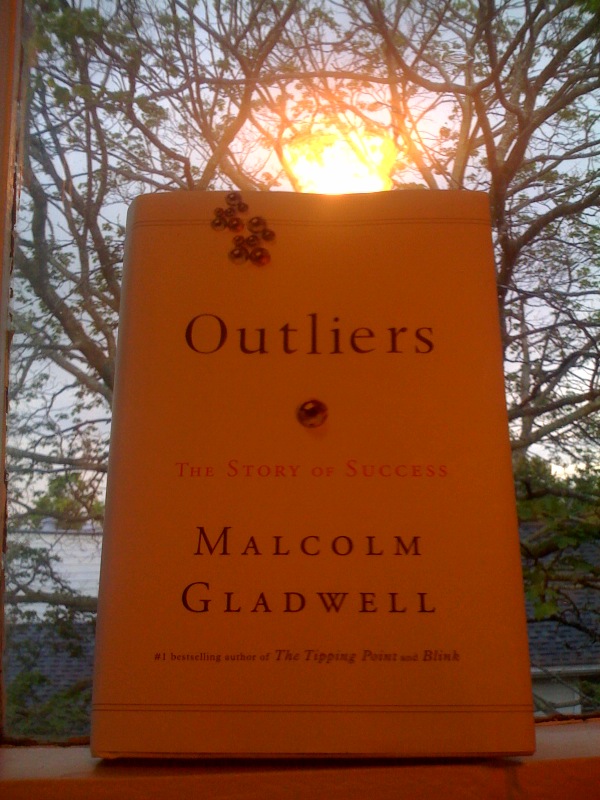
 RSS Feed
RSS Feed